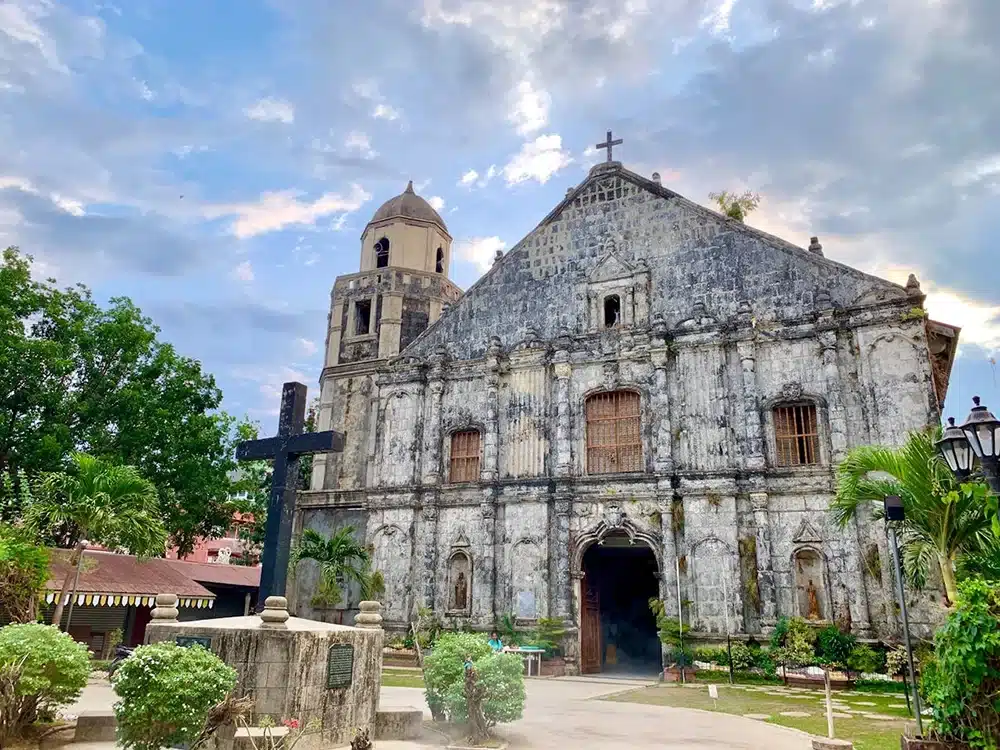How Holy Week in the Philippines Affects Businesses and Filipino Workers (And How Employers Can Respond)

Holy Week in the Philippines is one of the most significant religious observances. As a predominantly Roman Catholic country, the Philippines emphasizes this sacred time, commemorating Jesus Christ's passion, death, and resurrection.
For many, Holy Week in the Philippines is a time for family bonding, deep reflection, and spiritual renewal. Businesses, schools, and government offices often scale down operations, and many travel back to their hometowns. When you understand this cultural observance, it can help you foster a respectful work environment, particularly those with Filipino offshore teams.
So, if you've employed Filipino workers, this article is what you need. Read our article to learn about Holy Week in the Philippines and how you can navigate this cultural event.
When is Holy Week in the Philippines Observed?
Holy Week is the final week of Lent, beginning on Palm Sunday and culminating on Easter Sunday. The most solemn days are Maundy Thursday, Good Friday, and Black Saturday, which lead up to the joyful celebration of Easter Sunday.
The dates vary each year, based on the liturgical calendar, but they always fall within March or April. You must note that many Filipinos prepare for Holy Week in advance, participating in spiritual retreats, fasting, and other religious activities.
Here are key observances you should know about during Holy Week in the Philippines.
Key Observances During Holy Week in the Philippines
Palm Sunday (Palaspas)
Holy Week begins with Palm Sunday, commemorating Jesus Christ’s triumphant entry into Jerusalem, where crowds greeted Him by waving palm branches. This day is marked by special church services where devotees bring woven palm branches ("palaspas") to be blessed by the priest.

These blessed palm branches are then taken home and placed above doorways and altars, believed to ward off evil and bring blessings to the household. Vendors often fill the streets selling these palm branches, and families pack churches to attend Mass together.
If I scour long enough myself, I'd be able to find old blessed palm branches tucked away somewhere. We have a habit of nailing these palm branches on our door, too.
Maundy Thursday
Maundy Thursday is a solemn day commemorating Jesus's Last Supper with His disciples. One of the most well-known traditions during this day is the Visita Iglesia, where we Filipinos visit seven or more churches to pray and reflect on the Stations of the Cross.

This tradition is particularly popular in urban areas like Metro Manila, Cebu, and Davao, where historic churches are close, allowing devotees to walk (or drive!) between them. Many businesses and government offices close early or cease operations on Maundy Thursday. This also makes it a time for Filipino families to bond with each other.
In some regions, devotees perform religious reenactments of the Last Supper and the Washing of the Feet. These reenactments emphasize the humility and service Christ showed, qualities that Filipinos also possess themselves.
Don't be surprised when your Filipino teammates tell you about the seven churches they visited during your morning meeting!
Good Friday (Biyernes Santo)
Good Friday is the most solemn day of Holy Week in the Philippines. It commemorates the crucifixion and death of Jesus Christ. It's a day of fasting and deep mourning. Many Filipinos observe this day by abstaining from meat, fasting, and avoiding loud or celebratory activities. Aside from this, churches hold a Siete Palabras service, or seven last words service, where devotees meditate on Christ's seven last words in homilies.

One of the most striking Filipino traditions during Good Friday is the Senakulo, a dramatic reenactment of Christ’s Passion. In some towns, particularly in Pampanga, penitents engage in Penitensya, which includes self-flagellation, carrying heavy wooden crosses, and even voluntary crucifixion.
Yes, you've read that right!
While the Roman Catholic Church does not officially sanction these acts of devotion, they still remain deeply rooted in local traditions. Additionally, processions featuring life-sized statues of Jesus, the Virgin Mary, and saints draw large crowds who walk barefoot as a sign of penance.
Black Saturday
Black Saturday is a day of silence and mourning, which symbolizes Jesus's time in the tomb. Many churches remain bare, with altars stripped of decorations and images covered in black cloth. While religious activities slow down, many Filipinos use this day for quiet reflection or preparation for Easter celebrations.
Some communities hold overnight vigils in anticipation of Easter Sunday. Traditionally, swimming and outdoor leisure activities during Black Saturday are believed to bring bad luck, so people are discouraged from doing these activities.
Even if you plan to take a stroll in the mall, you'll hear common phrases like, "God has died, so stay indoors because nobody can protect you."
Easter Sunday
This is the day that everyone waits for. Easter Sunday marks Jesus Christ's resurrection, ending the solemnity of Holy Week and ushering in a joyous celebration. One of the most beloved traditions of Filipino Catholics on this day is the Salubong.
In this pre-dawn ritual, statues of the Risen Christ and the Virgin Mary meet in a staged encounter that symbolizes the joyous reunion of mother and Son. This event is often accompanied by angelic processions, music, and flower petals being showered upon the statues. Easter Sunday is also a time for family gatherings, feasts, and reunions, similar to Christmas celebrations. During Easter, Filipinos break their Lenten fasts with special meals and enjoy activities like Easter egg hunts for children.
How Does Holy Week Affect Filipino Workers?
Since Filipinos observe several key days during Holy Week, their work schedules may be affected, particularly from Thursday to Sunday.
Here’s what you need to know to stay prepared during the Holy Week.
1. Businesses Are Closed
Maundy Thursday and Good Friday are declared public holidays in the Philippines, meaning most businesses, government offices, and even shopping malls shut down. Expect your employees to take advantage of the long weekend to travel to their home provinces or participate in religious activities.
For offshore employers, this means that Filipino team members may not be available for work these days. Some companies also implement holiday pay schemes, as labor laws in the Philippines require premium rates for those working on public holidays.
2. Reduced Work Availability
Since Holy Week is a deeply ingrained cultural and religious observance, your Filipino employees will want to take time off, especially from Maundy Thursday to Easter Sunday.
Those working in non-essential industries may request leave to travel, attend religious events, or be with family. As an employer, you should expect slower response times and possible project delays during this period.
3. Observance of Religious Traditions
Your Filipino workers may observe personal fasting and abstain from meat, alcohol, or leisure activities during Holy Week, so organizing company-wide parties during this time won't be a good idea.
Some of your workers may request schedule adjustments to accommodate their participation in church services or processions. It's important that you be mindful of these religious observances to foster respect and strengthen employer-employee relationships.
Best Practices for Employers During Holy Week
Now you know how the Holy Week can affect your Filipino workers. With the proper preparation, you can ensure you and your workers experience a smooth Holy Week.
Let’s consider what you can do during the Holy Week to maximize your team.
1. Plan Work Schedules in Advance
Even before Holy Week starts, you should anticipate limited availability and plan workloads accordingly. If business operations require continuous staffing, consider shifting work schedules or incentivizing your employees working on Holy Week holidays.
2. Be Culturally Aware and Respectful
Understanding and respecting the significance of Holy Week can go a long way in fostering a positive work culture between you and your offshore team. Avoid scheduling important meetings, deadlines, or product launches on Maundy Thursday and Good Friday because your employees may take time off.
3. Offer Flexible Work Arrangements
If feasible, allow your employees to work remotely or adjust their schedules. This flexibility can accommodate those who wish to travel or observe religious practices while maintaining productivity. This way, you can keep your company's productivity levels.
4. Acknowledge and Show Support
A simple message from you acknowledging Holy Week and wishing employees a meaningful observance can significantly impact the situation. This small gesture shows respect for your employees' faith and traditions, helping strengthen your relationship with them.
Embracing Cultural Awareness for a Stronger Workplace
If your employees are taking time off work, contact them or your CoDev Customer Success representative. This will ensure a smooth transition for your team during Holy Week.
That's all we have for you!
Holy Week in the Philippines is a significant cultural and spiritual observance that affects millions of Filipinos. When you understand the traditions, schedules, and expectations associated with Holy Week, you can create an inclusive and supportive work environment.
At CoDev, we specialize in helping businesses build and manage high-performing offshore teams in the Philippines. If you're looking for ways to support your Filipino employees better or want to learn more about how offshore hiring can benefit your business, call us today!




